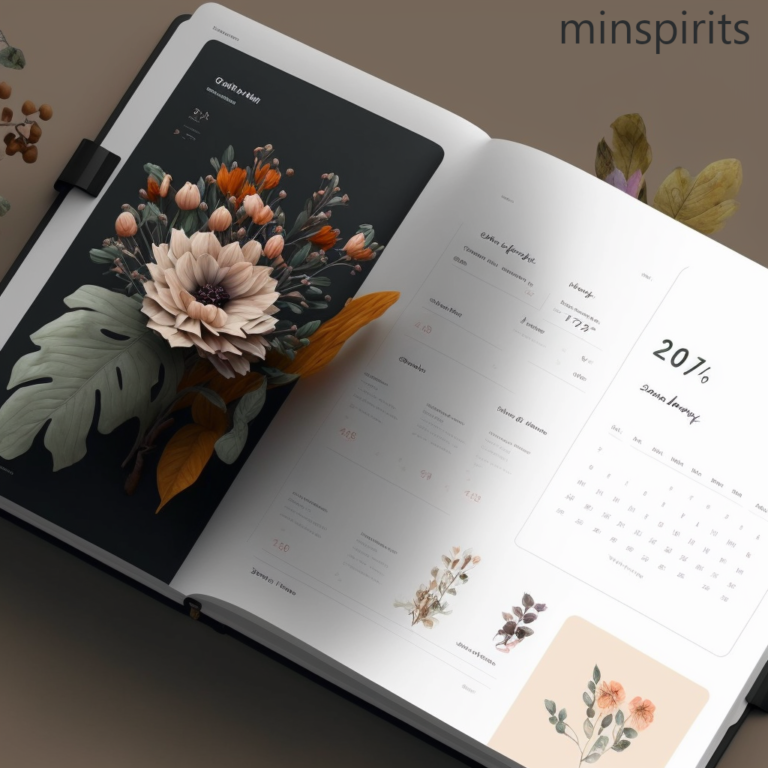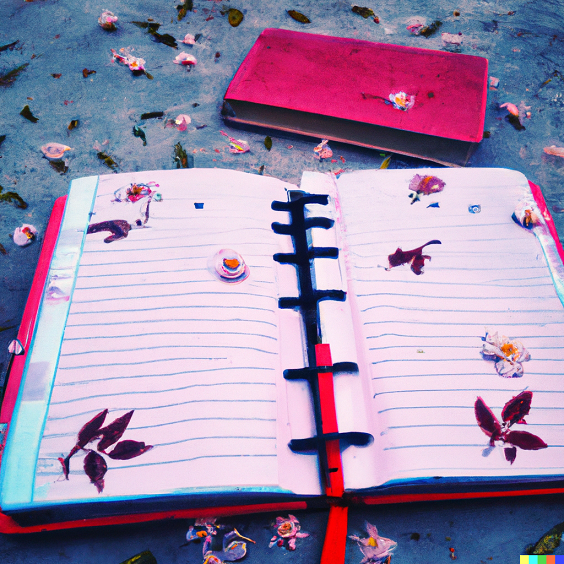Writing a diary should be a totally free form of self-expression. Read this post as inspiration and source of ideas, but write when you want, the way you want and about anything you want!

In our last post we gave you some good reasons why you should start a diary, today we come with some tips on how/what to write that hopefully will help you in your new journey.
1. Choose the Right Type of Diary
Different types of diaries serve different purposes and are better suited for different people. Here are a few types of diaries that you could explore, but of course you don’t have to commit specifically to one of them.
Free-flow diary: In this type of diary you can write whatever comes to your mind, let it flow, it can be about anything (good or bad), and it doesn’t need to follow any structure. In this form of stream-of-consciousness writing, you shouldn’t censor any of your thoughts, in fact you shouldn’t think much about it, just sit, relax and start writing, something will come.
This type of journaling will help you understand your thoughts and feelings better and to gain insights into your own mind. It is a form of self-expression and self-discovery where there are no rules or guidelines.
Gratitude diary: A gratitude diary is a diary that is used to record things you are grateful for. This type of diary is great for cultivating a positive mindset and can help you focus on the good things in your life. This type of diary can be a great way to promote mental health and well-being.
Bullet journal: A bullet journal is simply a type of diary that combines journaling with organization. It can be used to track your daily tasks, schedule, and goals.
Dream diary: A dream diary is a diary specifically dedicated to recording and analyzing your dreams. This can help you understand your subconscious mind and gain insight into your emotions and experiences.
Travel diary: A travel diary records your travel experiences, including places visited, people met, and things learned. This can be a great way to remember your trips and plan for future travels. Don’t forget to throw some photos in there!
Fitness diary: In this type of diary you can track your fitness progress, including workouts, meals, and any other relevant information. This can help you stay on track with your fitness goals and monitor your progress over time.
Creative diary: A creative diary serves as a creative outlet for writing, drawing, or painting. This can be a great way to express yourself and explore your artistic side. This type of diary can also be used as a form of self-care and a way to take a break from the stress of everyday life.
Health diary: A health diary records and monitors your health, including symptoms, medications, and doctor’s visits. This can help you keep track of your health and communicate effectively with healthcare professionals.
Mood diary: A mood diary records and tracks your moods and emotions. This can help you understand patterns in your moods and identify triggers for negative emotions.
Sex or romance diary: In this type of diary you can document your sexual experiences, thoughts, and feelings. It can be used to explore one’s own sexuality, track sexual experiences, document fantasies and desires, or even to reflect on past relationships. It can be a way to explore and understand one’s own desires and boundaries and to gain insights into one’s own sexuality. Some people also use them as a form of self-expression, to document their journey towards self-discovery and acceptance.
Food diary: A food diary records the food you eat, including what you ate, when, and how much. This can help you monitor your diet, plan meals, and make healthier food choices
Study diary: A study diary records your study progress and helps you organize your study schedule, track your progress, and reflect on your learning.
Well this could go on forever :).. You get the point, you can really write a journal about anything you like, name it, work, family, friends, pets, music, hobbies..

2. Choose a Format
When choosing a diary format, there is no right or wrong answer. You can choose to write in a physical journal, type your entries in a word document, or even keep a digital diary on your computer or phone. Consider your lifestyle and choose the format that best fits your needs. If you go digital, have a look at minspirits 😎 , our online journaling community app.
3. Set a Schedule
Try to set a regular writing schedule. Whether it’s once a day or once a week, find a time that works for you and make it a habit to write in your diary (at least) at that time. This will help you to stay consistent and motivated.
The more you write, the more you will remember and the more you will benefit from keeping a diary. Even if you don’t have a lot to say, write something down anyway.
4. Find a comfortable environment
Create a comfortable writing environment. Find a place where you feel relaxed and can focus on your writing. This could be a cozy spot in your home, a peaceful park, or a quiet coffee shop.
5. Write Honestly
When writing in your diary, it’s important to be honest with yourself. Writing down your thoughts and feelings can be a great way to work through difficult emotions and gain insight into yourself. Try not to censor yourself and be as honest as possible.
6. Challenge yourself
Setting goals is a great way to get the most out of your diary. Whether it’s setting a goal to write every day or challenging yourself to explore different topics, having a goal can help to keep you motivated and engaged.
7. Reflect on your entries
After you write an entry, take some time to reflect on what you’ve written. What insights did you gain? What patterns did you notice? This will help you gain insights and understand yourself better.
8. Make it fun!
Of course, make it fun! Remember that journaling is a fun and creative process, so don’t make it a chore. Take it as an experiment!
Start small and don’t get discouraged if you miss a day or two. With time and practice, you’ll find that keeping a diary becomes a valuable and enjoyable part of your daily routine.
We hope this blog post has given you some useful tips to get started on your own diary-keeping journey. Good luck, and don’t forget to share your experiences with us!
Pingback: 20 types of diaries/journals - journalingonline.com
Pingback: Reasons to start a diary or journal now - Journaling Online: Discover Growth, Reflection, and Inspiration